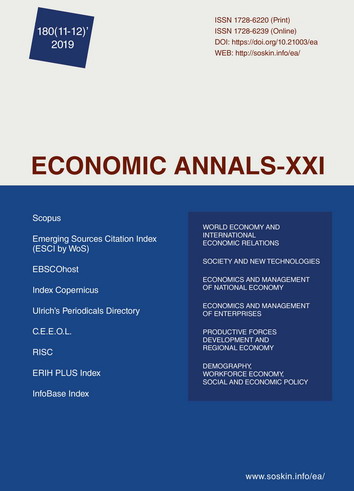Sociocultural dimension of traditional and modern forms of consumer motivation
Sociocultural dimension of traditional and modern forms of consumer motivation
Author(s): Alexander Abramov, Alexey SapronovSubject(s): Sociology of Culture, Marketing / Advertising, Socio-Economic Research
Published by: Institute of Society Transformation
Keywords: Sociocultural Analysis; Traditional Consumption; Modern Consumption; Motivation; Consumerism;
Summary/Abstract: Guided by the scientific principle from the general to particular, from the whole variety of theories and approaches existing in the system of scientific knowledge, the study presents the sociocultural perspective of studying traditional and modern forms of consumer motivation.The general methodology of sociocultural dimensions is built in line with the paradigms of quantitative and qualitative approaches. The first makes it possible to compare large amounts of data, determine patterns and evaluate individual behavioural preferences, values and attitudes. The qualitative approach involves an in-depth detailed analysis of cultural values, attitudes and norms, history, mentality, traditions, religion and other features. We have used the concepts of modern science representatives that interpret the transformation of all areas of society as a set of sociocultural trends.Official statistics and research results are interpreted from the standpoint of a sociocultural approach. Based on the data presented, we can conclude that older consumers are more conservative and tense with new consumer practices. There is a conflict of innovation and tradition. And this debate is actualized in the subject area of economic sociology. Moreover, modern people, regardless of age, are no longer able to independently explain their consumer preferences and rationally build their own cultural consumption practices. In turn, the Internet creates sustainable consumerism, a cultural artefact that is becoming the main consumer motivation.As a result, it is concluded that sociocultural analysis allows us to determine the harmonizing contours of conflicting traditional and modern models of consumer preferences. Using the sociocultural approach in the study of economic processes makes it possible to diagnose problems more precisely and make management decisions more effectively and reasonably.
Journal: Економічний часопис - ХХІ
- Issue Year: 180/2019
- Issue No: 11-12
- Page Range: 40-47
- Page Count: 8
- Language: English

